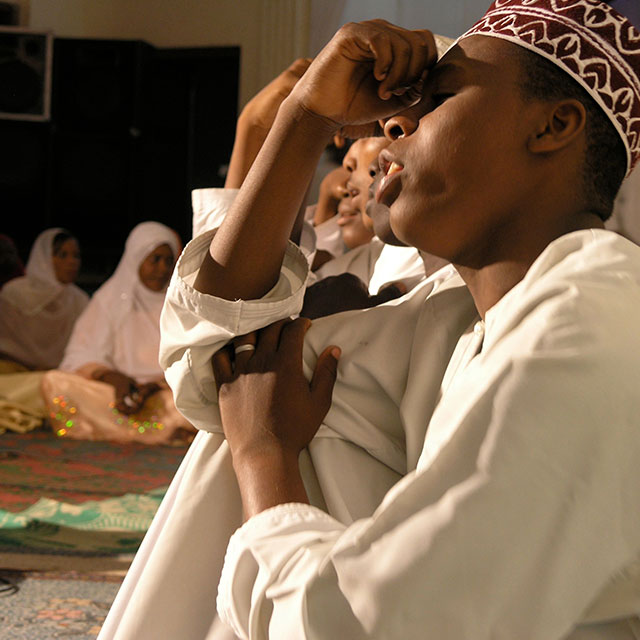Description
Man’s body is too small for the spirit that lives in it
African proverb
Mtendeni Maulid from Zanzibar
Sheikh Hamid Hossein Ahmad, Sheikh Ghanan and their ensemble from High Egypt
Sheikh Papa Sow Djimbira and Nounou Salam, the song of Khadre Sufis of Senegal
Samaa’ from Fez
In the African night, the voice of the Munshid (religious singer), whether he be from Zanzibar, from High Egypt or from Senegal, fashions and punctuates the words of a poetic world in which mystical love, anguish caused by absence and relinquishing of the body (sultãna) prevail side by side.
Forged by pilgrims, wise men and travellers of yesteryear, the different mystical trends (tariqa) of Africa extend a brotherhood-like universe of which the roots go back to the Orient.
Such multiple declinations extend from the ritual dhikr of the men of Zanzibar, belonging to the Rifai brotherhood, to that of the little village of Deir in High Egypt, provided by the men of the Naqshbandiya brotherhood. The former evoke, in rows and kneeling down, the movement of the ocean waves, in a long undulation of meandering curves. The latter, like warriors of an ancient tribe, frantically skew their bodies, and carried by the voice of the munshid around contiguous wooden benches, lit by lamp tinsels.
The voice of the munshid is that of another Islam : during a multitude of sleepless nights, it punctuates words snatched from the Islam of the street, of the village, of the Gallabiyas and of shishas, an Islam of the rural world that is deeply fond of mystical poetry.
Eventually, owing to the reading of texts by the Peule emblematic historian, Amadou Hampãte Bã, we discover the khadre songs of Papa Ndjimbira Sow, before returning to the Fez medina to meet the Tidjania path to which he was initiated.



